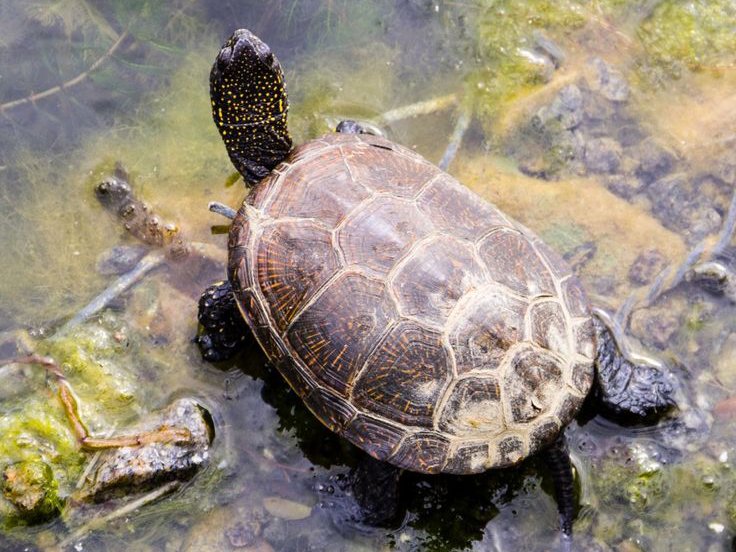Painted turtles are among the most popular freshwater turtles kept as pets, known for their colorful markings and relatively easy care requirements. If you’re considering adopting one, the first question you’ll likely ask is: What do painted turtles eat? Providing a proper diet is essential for their health, longevity, and shell development.
This complete feeding guide will walk you through everything you need to know about feeding painted turtles at each stage of life — from hatchlings to adults — and what to avoid to ensure your turtle thrives.
What Do Painted Turtles Eat in the Wild?
In their natural habitat, painted turtles are omnivores, which means they eat both plant and animal matter. Their diet consists of:
Aquatic insects and larvae
Small fish and crustaceans
Aquatic vegetation such as duckweed or algae
Painted Turtle Diet in Captivity
Replicating their wild diet in captivity is key to a healthy, happy turtle. Their needs change as they grow:
Hatchlings and Juveniles
Young painted turtles require more animal-based protein to support rapid growth. Feed them:
Commercial turtle pellets (high quality, protein-rich)
Bloodworms, brine shrimp, and mealworms
Small feeder fish (occasionally)
Adult Painted Turtles
As they mature, painted turtles shift toward a more plant-based diet. Adult turtles should eat:
Leafy greens (romaine, collards, mustard greens)
Aquatic plants (elodea, duckweed)
Vegetables like shredded carrot, squash, or zucchini
Final Thoughts
So, what do painted turtles eat? A balanced diet of protein and plants, tailored to their age, is essential. Hatchlings need more protein, while adults benefit from a plant-heavy diet with occasional animal protein. With proper feeding and care, your painted turtle can live a healthy and active life for decades.
Learn More
For more expert guidance on turtle nutrition and care, visit reputable sources like petniq.com or speak with a qualified exotic pet veterinarian.
